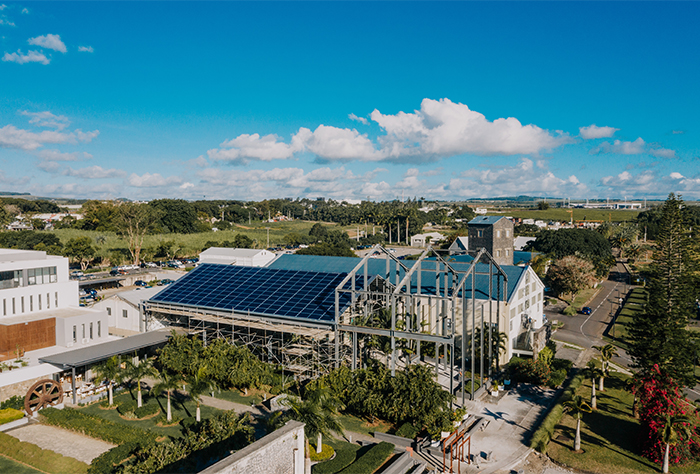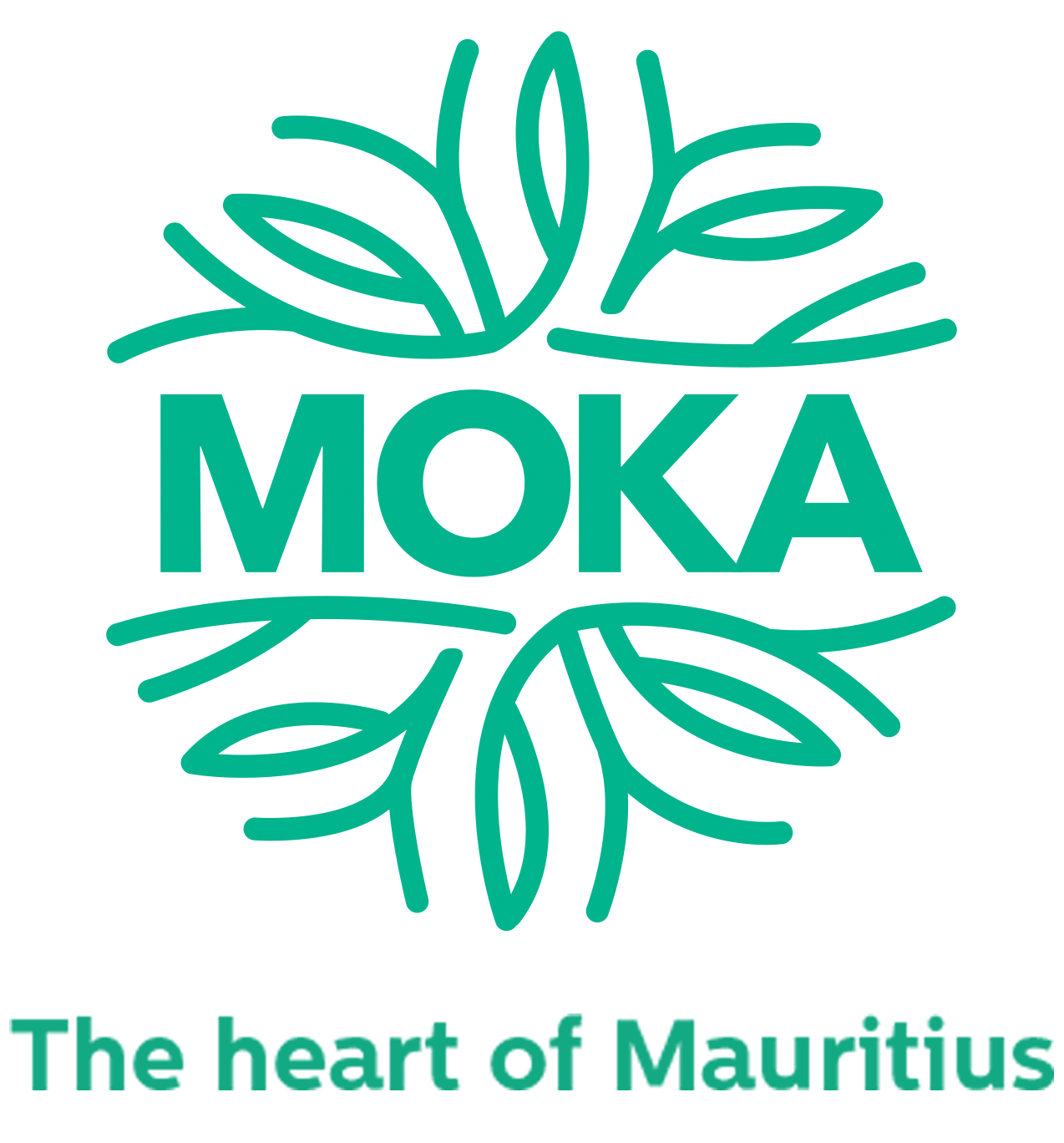Moka Smart City has shifted its focus in recent years to renewable energy. In line with this environmentally friendly approach, Vivéa Business Park’s Piazza has been equipped with solar panels that are unique in Mauritius and five rooftop photovoltaic farms have been installed recently.
Vivéa Business Park goes green
Vivéa Business Park’s Piazza has a new roof that has been much talked about lately. This semi-transparent roof manufactured in South Africa acts as a solar panel and directly provides electricity to surrounding offices. It covers a space that serves as a place to relax and have lunch for employees and translucent panels (instead of opaque, polycrystalline ones) have been used to let filtered light through.
What are the advantages of solar power? “It reduces the amount of fossil fuels we use, and we, therefore, save on oil imports and foreign currencies. More importantly however, solar energy does not release any CO₂, which is good for the environment,” says Thierry Rey, the Director of EnVolt and Business Development Director of ENL Property. EnVolt is an ENL subsidiary established in 2016 to manage the Group’s foray into the solar energy sector. The solar roof on Vivéa Business Park’s Piazza is actually neither the first nor the last project of this type for ENL.
Increase in the number of photovoltaic farms in Moka
Moka Smart City is a staunch supporter of renewable energy. To date, at least five photovoltaic farms have been installed in the region, providing a total of 2,353 kWp (kilowatt-peak) per year – equivalent to the annual consumption of 2,000 middle-income Mauritian households.
The total output of the five photovoltaic farms reduces CO₂ emissions by 3,500 tonnes per year, equivalent to planting 11,000 trees!
A total of 7,202 x 320 Wp (watt-peak) polycrystalline modules and 180 x 270 Wp translucent panels are now operational in Moka. And the city can be proud of having the Indian Ocean islands’ largest rooftop photovoltaic farm at Bagatelle Mall! “Our photovoltaic farms are intended for our own consumption, i.e. we consume everything we produce. When the offices are not in use on public holidays and weekends, the surplus is exported to the Central Electricity Board (CEB) grid,” says Thierry Rey. Rooftop installation has been chosen to avoid using fertile land.
While solar power generation is currently restricted by the CEB to 30% of the energy consumption of buildings, greater self-sufficiency could have been achieved without this limit. To be continued!

